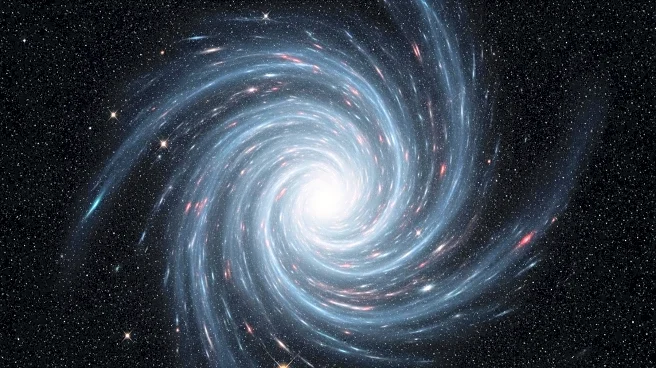What is the story about?
What's Happening?
Physicists are reevaluating the nature of black holes, considering alternative structures such as gravastars and fuzzballs. Traditional models describe black holes as singularities surrounded by event horizons, but new theories suggest they may be regularized by unknown forces, preventing singularity formation. Observational advancements, including gravitational wave detections and the Event Horizon Telescope, are providing new data to explore these possibilities. Researchers are investigating whether black holes might be mimickers, lacking singularities and event horizons, and instead possessing surfaces.
Why It's Important?
This exploration into the true nature of black holes has profound implications for our understanding of physics and the universe. If black holes are not singularities, it could lead to a paradigm shift in cosmology and theoretical physics, potentially uncovering new forces or particles. The study of black hole mimickers could redefine our approach to gravitational wave research and the interpretation of cosmic phenomena. These investigations may also influence the development of new technologies and methodologies in astrophysics.
What's Next?
Physicists will continue to analyze data from gravitational wave observatories and the Event Horizon Telescope to test theories about black hole structures. Proposed missions like the Black Hole Explorer could enhance observational capabilities, providing clearer images and data. The scientific community may focus on developing new models and simulations to understand the implications of alternative cosmic structures. Collaborative efforts between theorists and experimentalists are expected to advance the search for new physics.
Beyond the Headlines
The debate over black holes challenges fundamental concepts in physics, such as the nature of singularities and the limits of observational science. It raises philosophical questions about the universe's structure and the potential for unknown phenomena. The exploration of black hole mimickers may inspire new educational and public outreach initiatives, fostering interest in cosmology and theoretical physics.
















